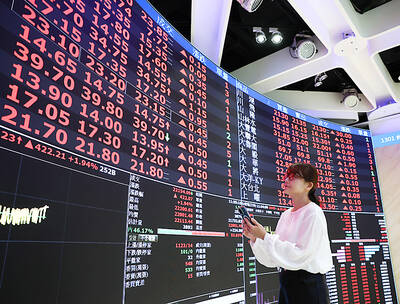Nestle SA chief executive Mark Schneider has made his biggest acquisition yet, agreeing to buy Canadian dietary supplements maker Atrium Innovations for US$2.3 billion in a bid for growth beyond stagnating mainstream food brands.
The world’s biggest food firm is acquiring Westmount, Quebec-based Atrium from an investor group led by Permira Funds, Nestle said in a statement on Tuesday.
The Swiss owner of Nespresso and Lean Cuisine is paying cash for the Garden of Life supplement maker, whose sales are expected to approach US$700 million this year.
Schneider is trying to turn around the Vevey, Switzerland-based company by focusing on niche acquisitions in areas such as healthy eating, hipster coffee, infant nutrition and pet care.
The new chief executive, who joined Nestle from German healthcare company Fresenius SE, is under pressure to revamp the food giant after the weakest nine-month sales since the turn of the century.
The Atrium deal, which includes the assumption of an undisclosed amount of debt, is Nestle’s biggest acquisition in medical nutrition since the company accelerated its push into health in 2006 by spending about US$2.5 billion on businesses from Novartis AG that make food for hospital patients.
“This is a good start,” Zurich, Switzerland-based Kepler Cheuvreux analyst Jon Cox said. “Nestle still has firepower to do all other deals it has been linked with, but I wouldn’t be surprised to see more under-the-radar stuff rather than the big bang.”
The deal, expected to close in the first quarter, would add to earnings growth immediately, Nestle Health Science chief executive Greg Behar said in a telephone call with journalists.
He added that the valuation of the deal is lower than what most assets in the consumer over-the-counter industry are going for.
“It’s a good size and digestible,” Behar said, adding that 80 percent of Atrium’s sales come from the US.
Nestle plans to boost distribution in the US and expand Atrium in other markets, he added.
Investors have speculated Nestle might buy the consumer health units of Pfizer Inc or Merck KGaA, or possibly organic food maker Hain Celestial Group Inc, Cox said.
“We continue to be open, but I’m not going to comment on the other stuff that’s out there,” Behar said.
Nestle has been investing heavily in its health science unit since 2011, trying to develop food-related products to prevent ailments such as obesity, metabolic problems and Alzheimer’s disease.
Behar said in 2015 that Nestle Health Science could eventually achieve sales of 10 billion Swiss francs (US$10.1 billion).
Atrium, founded in 1999, would add probiotics, plant-based protein nutrition, meal replacements and multivitamins to the Swiss company’s portfolio.
The Canadian company, which has 1,400 employees, sells its supplements in health food stores in the US and selected other markets.
Its brands include Wobenzym, Douglas Laboratories, AOV, Genestra Brands, Orthica, Minami, Klean Athlete, Pharmax and Trophic.

UNCERTAINTIES: Exports surged 34.1% and private investment grew 7.03% to outpace expectations in the first half, although US tariffs could stall momentum The Chung-Hua Institution for Economic Research (CIER, 中華經濟研究院) yesterday raised its GDP growth forecast to 3.05 percent this year on a robust first-half performance, but warned that US tariff threats and external uncertainty could stall momentum in the second half of the year. “The first half proved exceptionally strong, allowing room for optimism,” CIER president Lien Hsien-ming (連賢明) said. “But the growth momentum may slow moving forward due to US tariffs.” The tariff threat poses definite downside risks, although the scale of the impact remains unclear given the unpredictability of US President Donald Trump’s policies, Lien said. Despite the headwinds, Taiwan is likely

READY TO BUY: Shortly after Nvidia announced the approval, Chinese firms scrambled to order the H20 GPUs, which the company must send to the US government for approval Nvidia Corp chief executive officer Jensen Huang (黃仁勳) late on Monday said the technology giant has won approval from US President Donald Trump’s administration to sell its advanced H20 graphics processing units (GPUs) used to develop artificial intelligence (AI) to China. The news came in a company blog post late on Monday and Huang also spoke about the coup on China’s state-run China Global Television Network in remarks shown on X. “The US government has assured Nvidia that licenses will be granted, and Nvidia hopes to start deliveries soon,” the post said. “Today, I’m announcing that the US government has approved for us

When Lika Megreladze was a child, life in her native western Georgian region of Guria revolved around tea. Her mother worked for decades as a scientist at the Soviet Union’s Institute of Tea and Subtropical Crops in the village of Anaseuli, Georgia, perfecting cultivation methods for a Georgian tea industry that supplied the bulk of the vast communist state’s brews. “When I was a child, this was only my mum’s workplace. Only later I realized that it was something big,” she said. Now, the institute lies abandoned. Yellowed papers are strewn around its decaying corridors, and a statue of Soviet founder Vladimir Lenin

The National Stabilization Fund (NSF, 國安基金) is to continue supporting local shares, as uncertainties in international politics and the economy could affect Taiwanese industries’ global deployment and corporate profits, as well as affect stock movement and investor confidence, the Ministry of Finance said in a statement yesterday. The NT$500 billion (US$17.1 billion) fund would remain active in the stock market as the US’ tariff measures have not yet been fully finalized, which would drive international capital flows and global supply chain restructuring, the ministry said after the a meeting of the fund’s steering committee. Along with ongoing geopolitical risks and an unfavorable